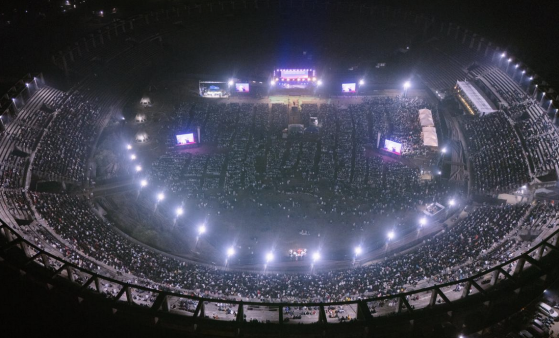Cairo, Egypt – Sectarian violence flared up in Alexandria recently, forcing thousands of policemen to man barricades around Christian churches, Christian Today has confirmed.
According to media reports, thousands of Muslim rioters attacked churches and shops in Alexandria on October 21, Egypt’s second largest city, in what officials called the worst case of sectarian violence to strike this Mediterranean city in recent memory. In January 2000, an argument between a Coptic shopkeeper and a Muslim customer swelled into gunfights and other street battles that killed 23 persons, mostly Christians, in el–Kusheh, a town south of Cairo.
Clashes with local police have left over 90 injured and four dead, including two policemen.
Some 5000 Muslim rioters rampaged through the city, threatening to burn churches down, in protest against the distribution of a DVD of a play deemed blasphemous by the Muslims, Associated Press (AP) reported.
The play, entitled "I Was Blind But Now I Can See," tells the story of a Christian university student who converts to Islam when a group of Muslim men promise him money. When he becomes disenchanted with his move, the men threaten him to stop him from returning to his original faith.
St. George’s Coptic Church, the church in which the play was performed two years ago, came under heavy criticism from the international Islamic community that has accused the Copts of distributing the “blasphemous” DVDs and demanded an apology.
Many Muslim rioters hurled stones at the church, breaking doors and windows, and reportedly shouted “Allah ho Akbar” (God is Great).
It was unclear who was giving out the DVD, and church officials, as well as local residents, speculated its distribution may somehow be connected to the upcoming parliamentary elections, where aggravating sectarian tensions could help certain candidates win votes.
"Raising this now, is to be looking for a problem to break national unity," the church said in a statement issued to the media. "We believe that this problem was raised in light of the coming parliamentary elections."
Political leaders and security officials also are of the same view that Islamic extremists distributed the DVDs in an effort to tarnish the reputation of a Coptic Christian candidate running in next month's parliamentary elections for Alexandria's impoverished Ghorbal constituency.
Following the attacks, Maher Khalah, one of two Copts running on the ruling National Democratic Party ticket in this mainly Sunni Muslim country, announced that he was withdrawing from the race to prevent any recurrence of the violence.
"This violence is not about the DVD, it is all about the elections," Mr. Khalah told the Associated Press.
Of Egypt’s 70–million predominantly Muslim population, approximately 8 to 10 percent are Christians with most of belonging to the Coptic Orthodox Church.
Technically, Christianity is tolerated because it does not conflict with the Islamic code. The government bristles at any criticism regarding the status of Christians in this country, insisting they are treated as equals, though there has been some evidence of institutional discrimination. Few Christians hold high positions in the military and security forces, for example, and efforts to build or repair churches are often blocked.
According to Egypt’s Constitution, Islam is the official state religion, and Shari'a is the primary source of legislation. In addition, religious practices that conflict with the official interpretation of Shari'a are prohibited.




